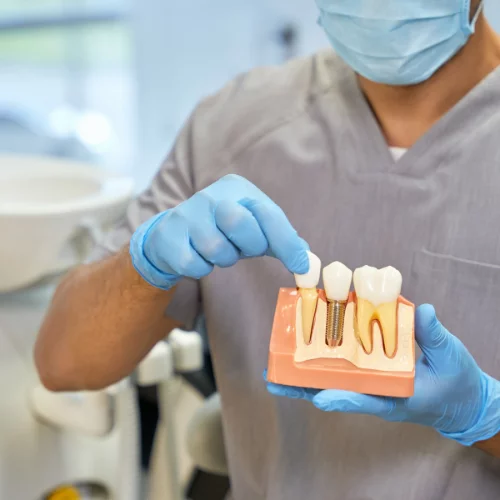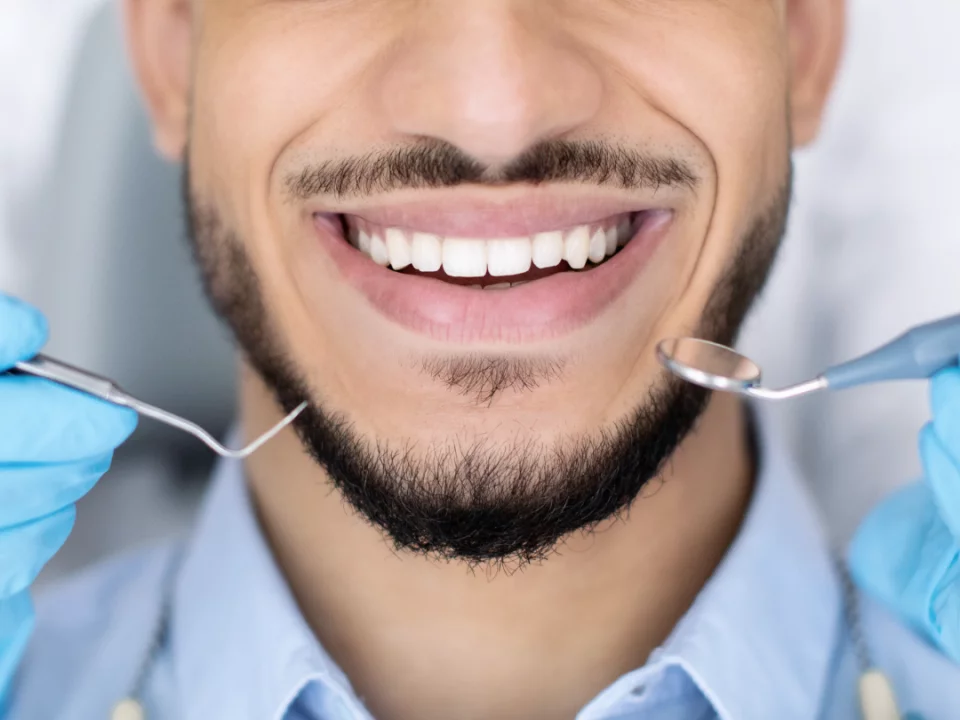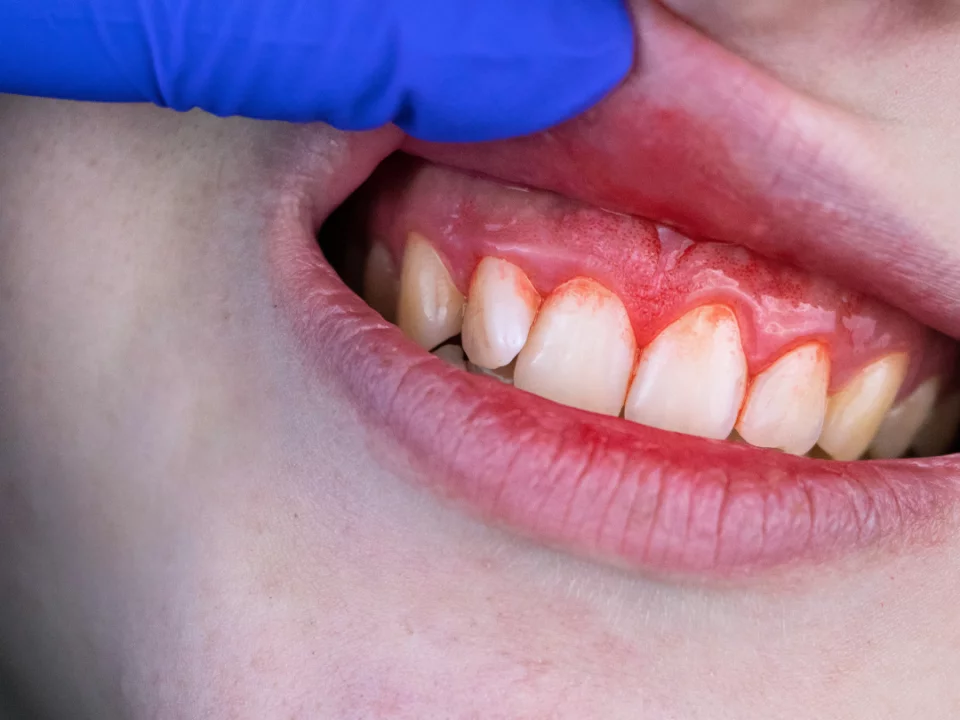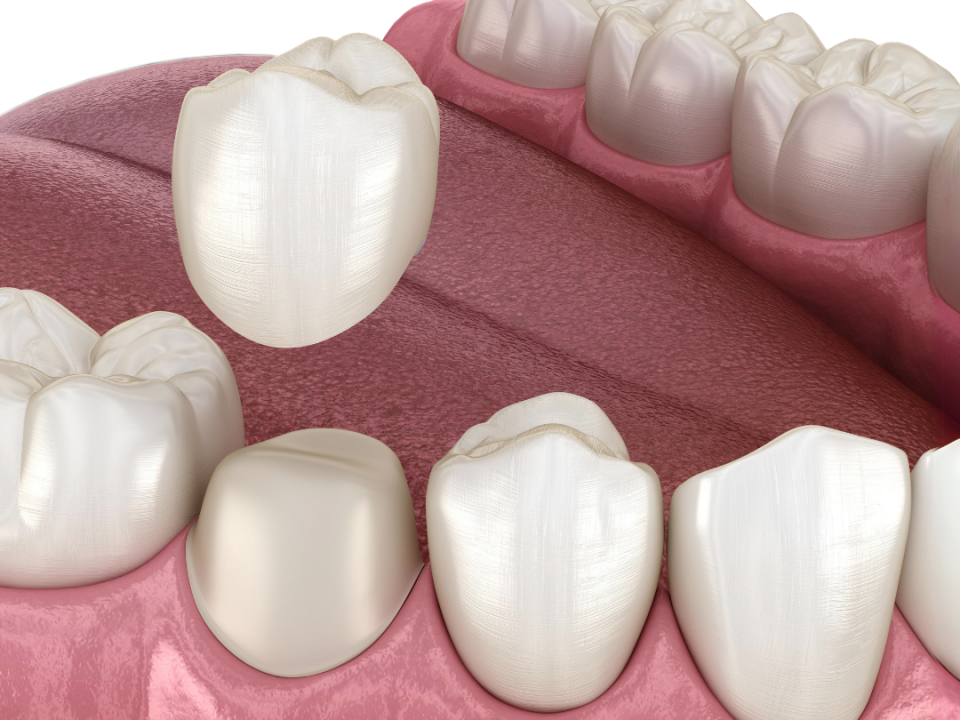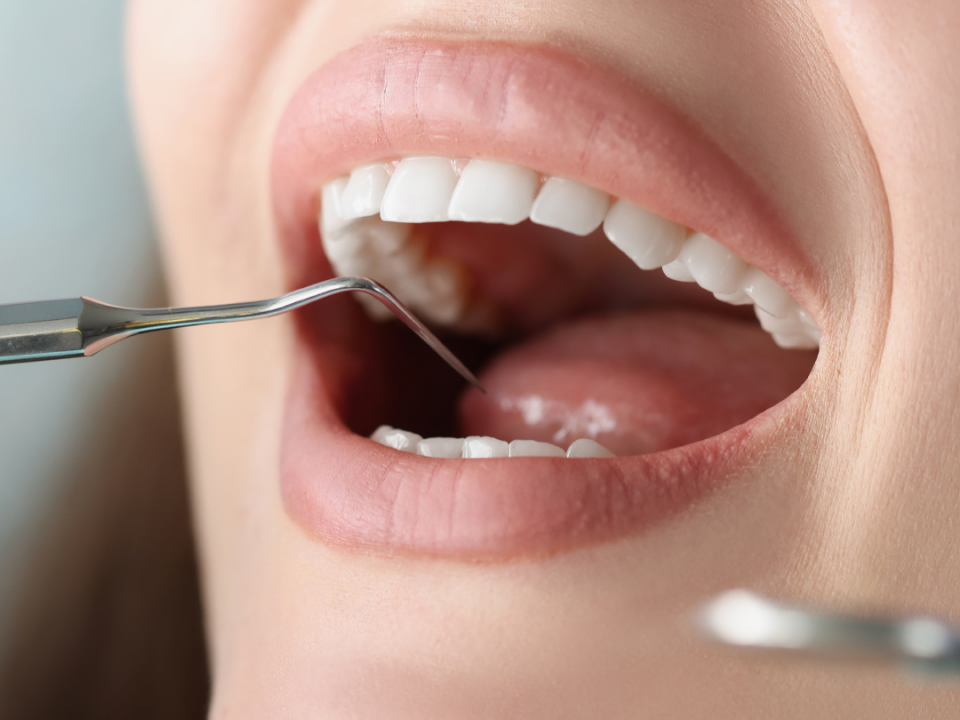March 18, 2024
Key Takeaways: Dental Implants Provide Long-Lasting Solutions: Dental implants offer a long-term and resilient solution for tooth replacement. Their permanent fixtures become part of your jawbone, […]
March 18, 2024
Key Takeaways: Front Teeth Are an Important Component: Front teeth play an essential role in dental health, aesthetics, and self-confidence. They help ensure proper jaw alignment, […]
February 29, 2024
Key Takeaways: Understanding Dental Implants: Dental implants are sophisticated devices designed to mimic natural teeth using titanium posts implanted into the jawbone surgically. Their purpose is […]
February 29, 2024
Key Takeaways: Invisalign Provides Concealed and Comfortable Orthodontic Treatment: Invisalign’s revolutionary system of clear aligners provides a discreet yet comfortable orthodontic solution to straighten teeth without […]
December 21, 2023
Your healthy teeth may function fine but may not look as good as you want them to. Cosmetic dentistry focuses on enhancing the overall appearance of […]
December 21, 2023
Because vape pens do not contain the same extra ingredients that cigarettes have, some people think that smoking them causes less harm to the teeth. However, […]
November 30, 2023
While everyone wants to have healthy-looking, white teeth, you should use caution with whitening products. You can whiten your teeth too frequently or use too much […]
November 30, 2023
Do you want a great way to help keep your kid’s teeth healthy as they grow? Dental sealants could help prevent cavities in your child’s mouth, […]
October 31, 2023
Patients often come into dentists’ offices with the question, “Why do my gums bleed when I floss?” The answer differs for everyone. Bleeding gums after flossing […]
October 31, 2023
When you have restorative dental treatment, part of the process may include getting a crown. This replaces the top portion of the tooth to strengthen a […]
September 29, 2023
Everyone wants a great-looking smile, but tooth loss or damaged teeth can impact how your grin looks. Veneers and implants offer ways to repair damaged smiles. […]
September 29, 2023
Mouth cancer, also known as oral cancer, can quickly appear and spread. Dentists perform oral cancer screenings to try to spot signs of this condition in […]
Follow our blogs on dental care and learn about oral health and latest dental technologies.
Our blogs on dental care will help you in upgrading your knowledge about oral health and dentistry here.
Stay tuned for our latest blog post.



